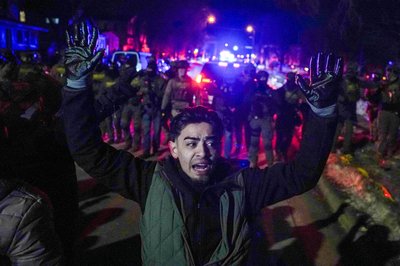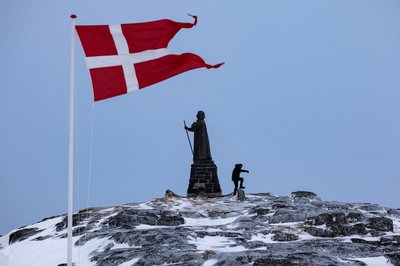NOTE: If you are short on time, watch the video and complete this See, Think, Wonder activity: What did you notice? What did the story make you think about? What would you want to learn more about?
SUMMARY
Fred Tutman is the riverkeeper of Maryland’s longest and deepest intrastate waterway. He's an advocate for the Patuxent River and one of the longest-serving waterkeepers in the Chesapeake region. Our journalism training program, PBS News Student Reporting Labs, traveled to Maryland to learn about Tutman's unique job.
View the transcript of the story.
News alternative: Check out recent segments from the NewsHour, and choose the story you’re most interested in watching. You can make a Google doc copy of discussion questions that work for any of the stories here.
WARM-UP QUESTIONS
- Who is Fred Tutman, and what is his background?
- What is a "river keeper," according to Tutman?
- When did Tutman become a clean water advocate?
- How does Tutman advocate for clean water?
- Why does Tutman advocate for clean water? In what ways is he hoping to see change?
FOCUS QUESTIONS
- How do you think Tutman's mentorship of young people helps protect the waterways?
- In his interview, Tutman brings up the "isms" — how do you think the "isms" affect environmental and ecological projects?
Media literacy: What do you think were the interests and sources of curiosity on the part of the student reporters who produced this segment? Why do you think they wanted to interview and profile Tutman?
WHAT STUDENTS CAN DO
Research individuals or organizations that protect waterways in your community, including the water you rely on for drinking. Try to answer some of the following questions:
- Many of the organizations dedicated to protecting water used for drinking are state or federal governmental agencies, such as the EPA, and legislation provided by the Clean Water Act. Does anyone in your community work to protect waterways that is not part of a government agency? If so, who are they, and what are their stated goals?
- Do any of the individuals or organizations you found do public outreach, such as information sessions or mentorships?
- If you could ask any questions about the health and safety of your local waterways such as rivers, reservoirs and drinking water, what would they be?
As a class, brainstorm some ideas for making critical waterways in your community cleaner and safer. What are some actions you could take right now?
Written by Payton Alfieri, PBS News Hour Classroom's intern and senior at Episcopal High School, and News Hour's Luke Gerwe.
Fill out this form to share your thoughts on Classroom’s resources.





